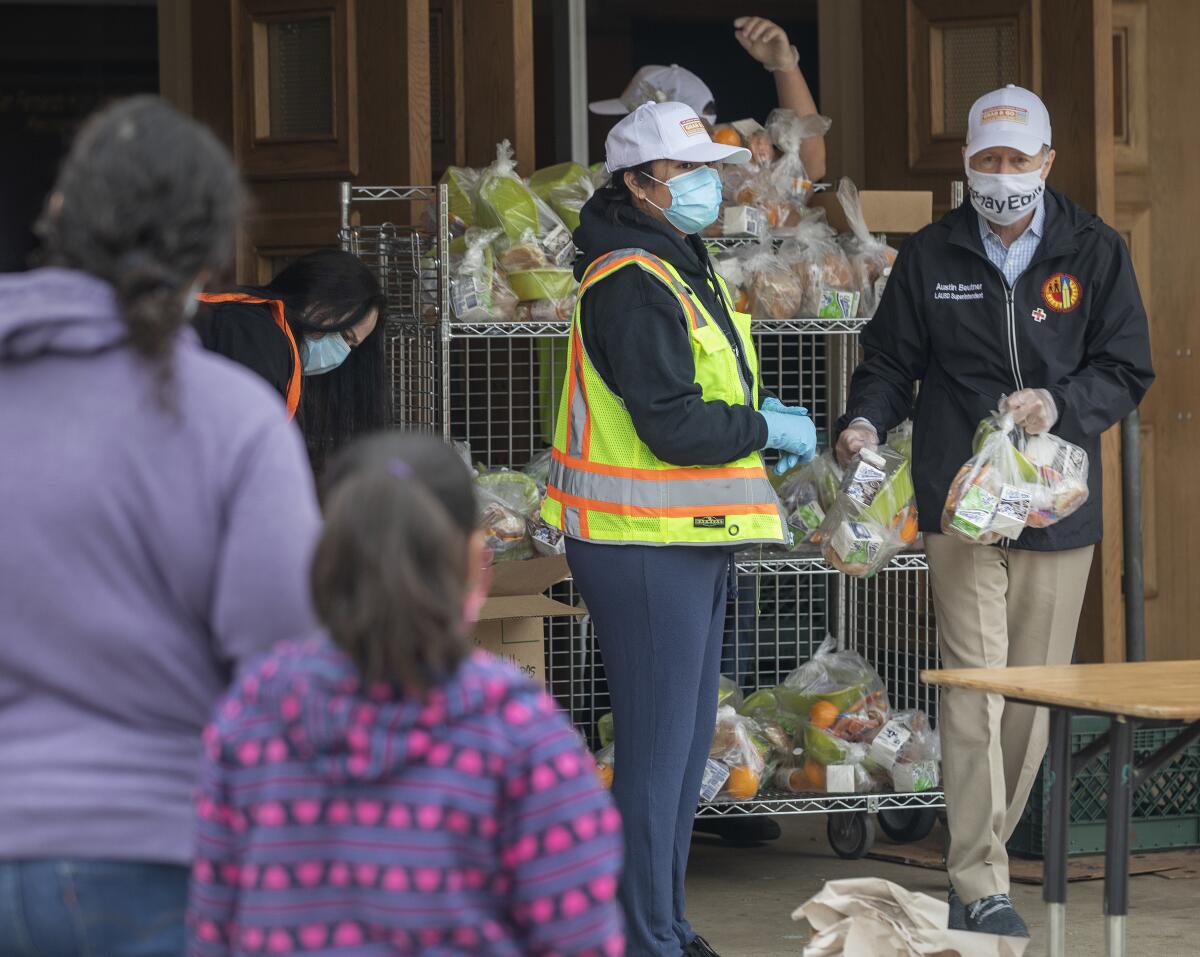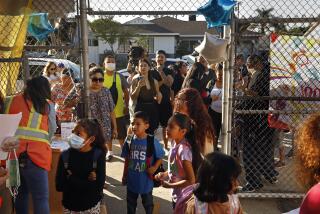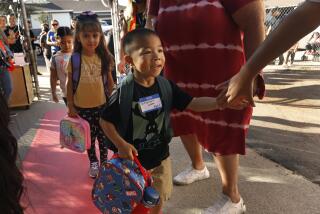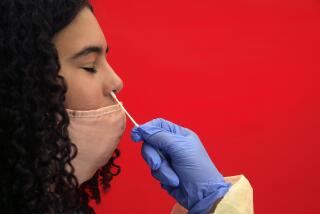Testing students for coronavirus in the fall is a big unanswered question

- Share via
Although the school year in Los Angeles is set to begin in mid-August, the prospect of opening 900 campuses will rely on solutions for daunting and costly problems — including whether half a million students and their families would be tested for COVID-19, Supt. Austin Beutner said.
“There has been discussion about the need to have students with families tested, but no clear picture yet drawn as to where the tests would be provided and who will pay for them,” Beutner said in an interview. His staff is working with state and local authorities and a team of UCLA experts on reopening protocols.
Two other major concerns include coming up with a plan — and funding — for supplying masks for students and staff, perhaps multiple masks a day for children, and sanitizing schools, he said.
“The top-to-bottom cleaning that will be necessary and appropriate is different than it might have been just a few months ago,” Beutner said. “Schools were cleaned every day, but not necessarily sanitized. It’s two different things. Sanitizing is more intensive, costs more.”
Beutner also spoke of the difficulty of managing students’ safety once they return to campus. He referenced research suggesting that a school environment ranks among the settings where infections would be more likely to spread, on par with college dorms and nightclubs.
As for masks: “Where will those come from? Are we buying them?” asked Beutner, who foresees difficult economic times.
The concern over finances is timely. Gov. Gavin Newsom this week is expected to release his revised budget proposal for next year — as measures to combat COVID-19 have decimated the state budget with a projected $54.3-billion deficit through the summer, the largest in state history. In a worst-case scenario, analysts forecast a 20% cut to education funding.
Beutner responded last week to that dire prospect in a joint statement with Cindy Marten, the superintendent of San Diego Unified, the second-largest district in California.
“That level of spending reduction would make it impossible for schools to safely reopen this fall,” the superintendents said. “There is no substitute for learning in a classroom setting and a total reliance on online learning may result in many, perhaps the majority of students, losing the equivalent of a year of their education, permanently damaging their future and exacerbating inequality in our society.”
In Los Angeles, the coronavirus emergency has resulted in well over $200 million in unbudgeted expenses. The district has so far drawn on reserves and the proceeds of voter-approved school construction and modernization bonds.
L.A. Unified also is expected to receive about 20% of the federal bailout money that has been set aside for California’s schools. The L.A. share, estimated at more than $291 million, is so large because the federal aid is tied to poverty and about 80% of district students are members of low-income households.
Despite the budget uncertainties, Beutner made clear that the district will push forward with its massive food-distribution program throughout the summer, providing meals to tens of thousands of students and their families.
However, he also said it was wrong for other government agencies to rely on L.A. Unified to pay for feeding the broader community. He insisted the school system should be reimbursed for much of this cost.
“Each day we’re providing enough meals to give one to every person who lives in Wyoming or Vermont ... a stark reminder of how real the struggle is for many families in the communities we serve,” Beutner said in remarks prepared for what has become a weekly broadcast update on Monday.
A districtwide distribution of computers to students would be substantially complete by the end of this week, he said, with a last group of elementary schools receiving tablet computers and internet hot spots. Other schools and higher grades have received laptop-style devices.
“My commitment when we closed school facilities on March 13th was to do the best we could, even in these extraordinary circumstances,” he said. “Part of that is to make sure every student has a digital device and internet access.”
Students in families without adequate technology have been relying on paper packets, phone calls with teachers and managing assignments on smartphones.
Beutner called technology “a necessary precondition” to effective learning: “If you’re not connected, and I mean connected in a literal sense, if you don’t have a device that works and access to the internet, your chance of engaging in the learning is zero.”
In his remarks, the superintendent also relayed several additional developments, including a new process to manage the needs of students with disabilities through online conferences. Not as good as meetings in person, he said, but a step forward.
In addition, Beutner highlighted partnerships to provide new and engaging online content for students. These include:
- Instruction on creating an animated film from Illumination, the creators of “Despicable Me” and “The Secret Life of Pets.”
- A “Voyage of the Titanic” with director James Cameron, for high school students to learn about the biology and physics of the deep ocean, underwater exploration and artifact conservation and to hear survivors’ stories.
- Instruction on the science, nutrition and medicine of sports — along with practical advice on a healthy lifestyle from the Los Angeles Chargers.
- A virtual exploration of space provided by the Columbia Memorial Space Center.
- Free guitars and ukuleles for up to 1,500 middle school students with help from the guitar company Fender.
More to Read
Sign up for Essential California
The most important California stories and recommendations in your inbox every morning.
You may occasionally receive promotional content from the Los Angeles Times.











